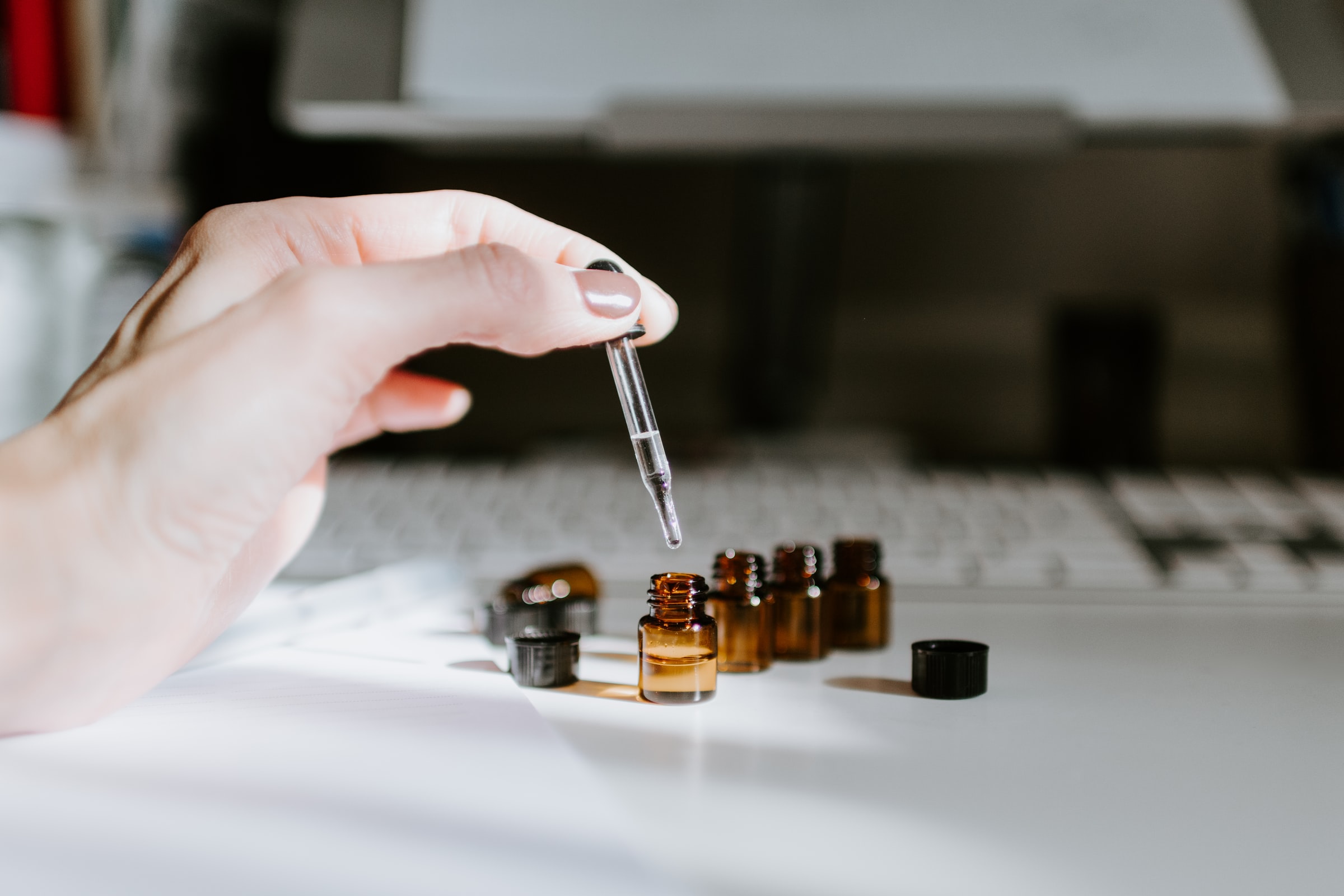
Aromatherapy is a useful tool for health and wellness. Learning to use essential oils safely and effectively is a bit daunting at first, though. Here are nine simple tips to get you started.
9 Tips For Aromatherapy Beginners
1. Buy One or Two Aromatherapy Books
First of all, it’s good to have a book or two to for easy reference. Choose just one or two books to start your aromatherapy library. It’s best to choose books that are general resources to begin. This gives you some basic information and helps you discover the areas in which you have the most interest. A knowledgeable author will not recommend ingesting essential oils or using them undiluted (neat) topically. Steer clear of any books recommending ingestion or neat usage.
The only possible exceptions are undiluted topical use of lavender and tea tree oil, however the safest route is always to dilute in a carrier oil.
2. Join Aromatherapy Discussion Forums
Facebook groups, Instagram pages and other forums are great resources for aromatherapy newbies. Read past discussions, ask questions, and learn from others. This is my favorite Facebook group for learning about essential oil safety: Using Essential Oils Safely.

3. Choose Five or Ten Essential Oils to Start
Though you may be tempted to buy more, try to begin with just five or ten different essential oils. Because essential oils can be pricey, you may want to experiment with a few at first. Then you can invest in more if you decide to pursue aromatherapy further. Some of my favorites are lavender, tea tree, peppermint, lemon and rosemary.
4. Make Sure to Buy 100%, Pure, Unadulterated Essential Oils
When you buy essential oils, choose well-known and reputable manufacturers. Avoid anything described as synthetic, fragrance, and/or perfume oils. These are not essential oils; they contain man-made chemicals and have no aromatherapeutic value.
Further more, good quality essential oils do not have to cost a fortune. Some of my favorite brands are Now, Plant Therapy, Aura Cacia, Eden’s Garden and Garden of Life. I personally avoid the MLM brands due to some of their business practices.
5. Buy at Least One Carrier Oil
For nearly all topical aromatherapy applications, you will need to dilute essential oils with a carrier oil. Good all-purpose carrier oils include sweet almond oil, coconut oil, olive oil, and grapeseed oil.
Choose a good quality carrier oil based on the application and your skin type, and use only a few drops of essential oil(s) per ounce of carrier oil. As you learn more about essential oils, you can play around with the dilution ratios depending on your needs.
My favorites are coconut for normal to oily skin and olive for dry skin. I like these because they are easy to find just about anywhere.
6. Store Your Oils Properly
Essential oils should be stored only in dark glass containers. Since essential oils are volatile, keep the lids tightly closed. Essential oils and carrier oils should be stored away from heat and light. Carrier oils will go rancid eventually, so it’s best to buy smaller quantities.

7. Learn How to Do a Patch Test
Essential oils can cause adverse reactions due to allergy or sensitization over time. A patch test helps to determine whether you might react to a particular essential oil. It is important to perform a skin patch test on yourself with each new oil you want to use topically.
8. Don’t Use Aromatherapy with Children or Pets
Until you are thoroughly familiar with essential oils and associated safety issues, don’t use them on children or pets, or while pregnant or breastfeeding. Cats, in particular, may be adversely affected by essential oils. Make sure essential oils are kept out of reach of children.
9. Don’t Ingest Essential Oils
Lastly, do not ingest essential oils. When taken internally, essential oils can damage your esophagus and liver. Some essential oils that are safe to use topically may be quite toxic if taken internally. In addition, some essential oils may interact with prescription or over the counter drugs. The only safe way to ever ingest essential oils is under the care of a licensed, knowledgeable aromatherapist, encapsulated with a carrier oil and for a brief period of time to treat a specific condition. Even then, it would be best to choose another option, such as an herbal infusion or tincture or medication prescribed by your doctor. This is true even for essential oils labeled “therapeutic grade” or similar.
As you experiment with and learn more about aromatherapy, you will become more confident using essential oils. There is so much to explore, so be safe and have fun!
Essential oils and herbal supplements are not FDA approved. This information is intended for educational purposes only and should not be considered as a recommendation or an endorsement of any particular medical or health treatment. Please consult a health care provider before pursuing any herbal or aromatherapy treatments.
Like this post? To make sure you never miss a future post, please sign up for my newsletter.
